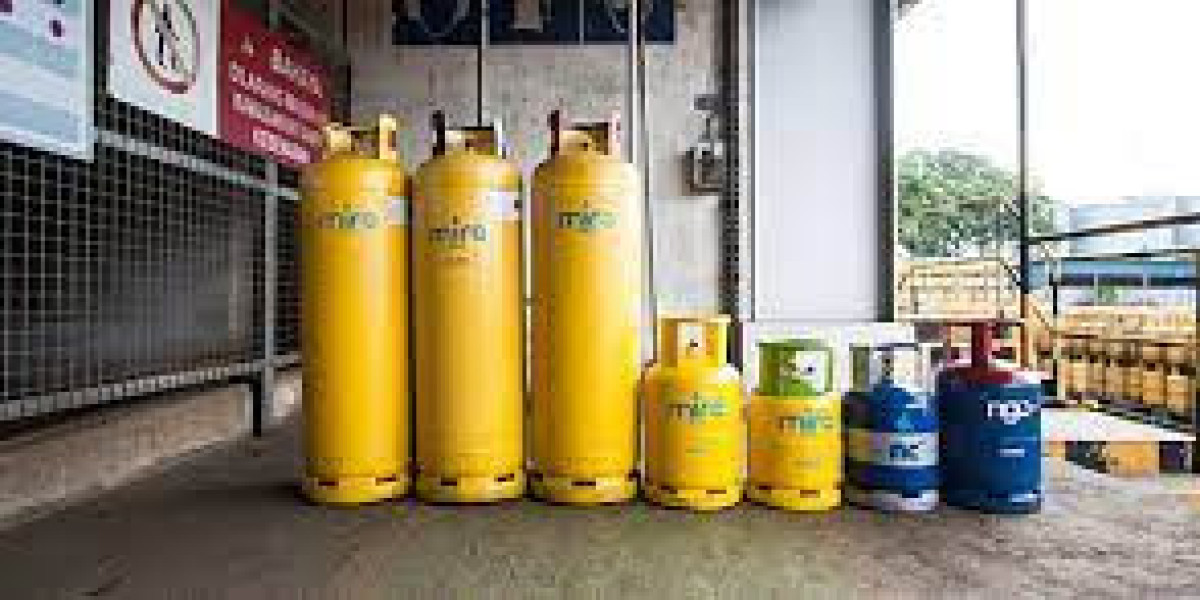Malaysia's gas pipeline infrastructure plays a critical role in the nation’s energy supply chain, ensuring that natural gas reaches residential, commercial, and industrial sectors. As a major producer and consumer of natural gas, Malaysia has developed a vast and efficient network of pipelines that support both domestic consumption and regional energy distribution. This article delves into the structure, significance, and challenges of Malaysia's gas pipeline infrastructure. gas pipeline Malaysia
Key Components of Malaysia’s Gas Pipeline Network
Malaysia’s gas pipeline system is comprised of a network of pipelines that extend across Peninsular Malaysia and its eastern states, including Sabah and Sarawak. These pipelines facilitate the distribution of natural gas, which is a primary source of energy for power generation, manufacturing, and households. Key components of the gas pipeline network include:
Peninsular Gas Utilisation (PGU) Pipeline:
- The PGU pipeline is the backbone of Malaysia’s gas transportation system. Stretching over 2,500 kilometers, it connects major gas fields in the southern and eastern parts of Peninsular Malaysia to key consumption centers, including Kuala Lumpur, Johor, and Penang. The PGU pipeline carries natural gas to power plants, industries, and residential areas.
- It also plays a vital role in exporting gas to neighboring Singapore via the Malaysia-Singapore Gas Pipeline (MSGP).
East Coast Gas Pipeline (ECGP):
- Serving the eastern states of Peninsular Malaysia, the ECGP transports natural gas from offshore fields in Terengganu, Kelantan, and Pahang to the PGU system. This pipeline is integral to meeting the gas demand in the eastern regions of the country, ensuring supply to power plants and industries.
Sabah and Sarawak Gas Pipelines:
- In East Malaysia, Sabah and Sarawak have their own gas pipeline networks that supply natural gas to local industries and power plants. The pipelines also connect the states with the broader national network, enabling the transfer of gas from offshore reserves to onshore facilities.
- The Bintulu-Lahad Datu Pipeline and Samalaju Gas Pipeline are examples of regional pipelines in these states, facilitating the transportation of gas to industrial zones.
Cross-Border Pipelines:
- Malaysia-Singapore Gas Pipeline (MSGP): This pipeline connects the Malaysian gas network to Singapore, allowing for the export of natural gas to the city-state. The MSGP plays a key role in regional energy cooperation and economic exchange.
- Thailand-Malaysia Gas Pipeline: Malaysia also exports natural gas to Thailand, supporting energy integration within the Southeast Asian region. This cross-border pipeline enhances the security of supply and fosters regional cooperation.
Significance of Gas Pipelines in Malaysia
The gas pipeline infrastructure in Malaysia is pivotal in ensuring that natural gas is delivered efficiently across the country. Its significance can be highlighted in several key areas:
Energy Security:
- Natural gas is a major fuel for electricity generation in Malaysia. The gas pipeline network ensures a continuous supply of natural gas to power plants, industries, and residential areas. The reliability of this infrastructure is crucial for the country's energy security, reducing the risks of power outages and disruptions.
- The interconnection of Malaysia’s pipeline system with neighboring countries, like Singapore and Thailand, also supports regional energy security by diversifying sources of natural gas supply.
Economic Growth and Industrial Development:
- The availability of natural gas through the pipeline network supports Malaysia's industrial growth, especially in manufacturing sectors such as petrochemicals, textiles, and food processing. Industrial facilities rely heavily on natural gas as a source of energy for production processes, heating, and electricity generation.
- Gas-fired power plants are a major contributor to the national grid, providing affordable electricity for households and businesses. The stable supply of gas through pipelines is essential for sustaining economic activity and maintaining industrial competitiveness.
Environmental Benefits:
- Compared to coal and oil, natural gas is a cleaner energy source, producing fewer greenhouse gas emissions when burned. The reliance on gas for power generation has helped Malaysia reduce the carbon intensity of its energy mix and meet environmental goals.
- The use of natural gas in place of dirtier fuels like coal contributes to cleaner air and lower levels of pollution, improving overall environmental quality.
Cross-Border Trade and Regional Cooperation:
- The development of cross-border pipelines, such as the MSGP and the Thailand-Malaysia gas pipeline, strengthens Malaysia’s role as a regional energy player. These pipelines enable the export of natural gas, which not only supports Malaysia’s economy but also helps stabilize energy markets in Southeast Asia.
- Regional cooperation in the energy sector encourages investments, technology exchange, and shared infrastructure, promoting the broader goals of energy integration in ASEAN (Association of Southeast Asian Nations).
Challenges Facing Malaysia’s Gas Pipeline Network
Despite the advancements in Malaysia’s gas pipeline infrastructure, several challenges must be addressed to ensure its continued effectiveness and sustainability:
Aging Infrastructure:
- Some segments of Malaysia’s pipeline network are aging and may require significant upgrades or replacements to prevent leaks, inefficiencies, or potential safety hazards. The cost of upgrading aging infrastructure is high, but it is essential to ensure the long-term reliability of the gas supply.
Increasing Domestic Demand:
- As Malaysia's economy continues to grow, the demand for natural gas is expected to rise, particularly from industries and power generation. This increased demand will require further investment in expanding the pipeline network to ensure that gas supply can meet future needs.
- Areas in remote or underdeveloped regions may face challenges in accessing reliable gas supply. Expanding the pipeline network to these areas can enhance energy equity across the country.
Environmental and Safety Concerns:
- The transportation and distribution of natural gas via pipelines pose environmental and safety risks, including the potential for leaks or explosions. Ensuring the safety of the infrastructure through regular inspections, maintenance, and the use of advanced technologies is critical to minimizing these risks.
- Environmental concerns about the potential impact of pipeline construction on local ecosystems and communities must be carefully considered and addressed through stringent regulations and environmental assessments.
Geopolitical and Market Risks:
- Malaysia’s reliance on natural gas imports, as well as its role as an exporter to neighboring countries, exposes it to fluctuations in global energy markets. Changes in market dynamics, political tensions, or disruptions to global supply chains could impact the stability of gas prices and availability.
- Malaysia will need to diversify its energy mix to reduce dependence on natural gas and enhance resilience against potential supply disruptions.
Future Outlook and Developments
The future of Malaysia’s gas pipeline infrastructure looks promising, with several developments expected to shape the sector:
Pipeline Expansion:
- As demand for natural gas grows, the pipeline network is likely to be expanded to meet new needs. New pipelines may be built to connect additional gas fields, power plants, and industrial zones, particularly in emerging areas.
- The expansion of cross-border pipelines will continue to play an important role in enhancing Malaysia’s energy security and facilitating regional energy trade.
Technological Advancements:
- Innovations in pipeline monitoring and safety technologies, such as real-time sensors, automated leak detection, and predictive maintenance, will improve the efficiency and safety of the pipeline system. These technologies will help prevent accidents, reduce downtime, and ensure reliable gas delivery.
- Smart grid integration, which combines natural gas and electricity distribution systems, will help optimize energy supply and demand, leading to more efficient resource management.
Integration with Renewable Energy:
- As Malaysia moves toward a more sustainable energy future, natural gas will continue to serve as a complementary fuel to renewable energy sources like solar and wind. Gas-fired power plants can provide backup power when renewable generation is low, ensuring a stable electricity supply.
- The integration of natural gas into a diversified energy mix will help Malaysia meet its climate goals while maintaining energy security.
Regional Energy Integration:
- Regional energy cooperation will continue to grow, with Malaysia playing a key role in connecting Southeast Asia’s energy markets. The development of cross-border pipelines and the establishment of regional energy trading mechanisms will enhance energy security across the ASEAN region.
Conclusion
Malaysia’s gas pipeline infrastructure is an essential component of its energy sector, ensuring the reliable and efficient delivery of natural gas to power plants, industries, and residential areas. With its vast network of pipelines and cross-border connections, Malaysia is well-positioned to meet growing energy demands while supporting regional cooperation in the energy sector. However, challenges such as aging infrastructure, environmental concerns, and increasing demand must be addressed to maintain the system’s reliability and sustainability. As Malaysia continues to develop and modernize its gas pipeline network, it will play a crucial role in shaping the country’s energy future.








